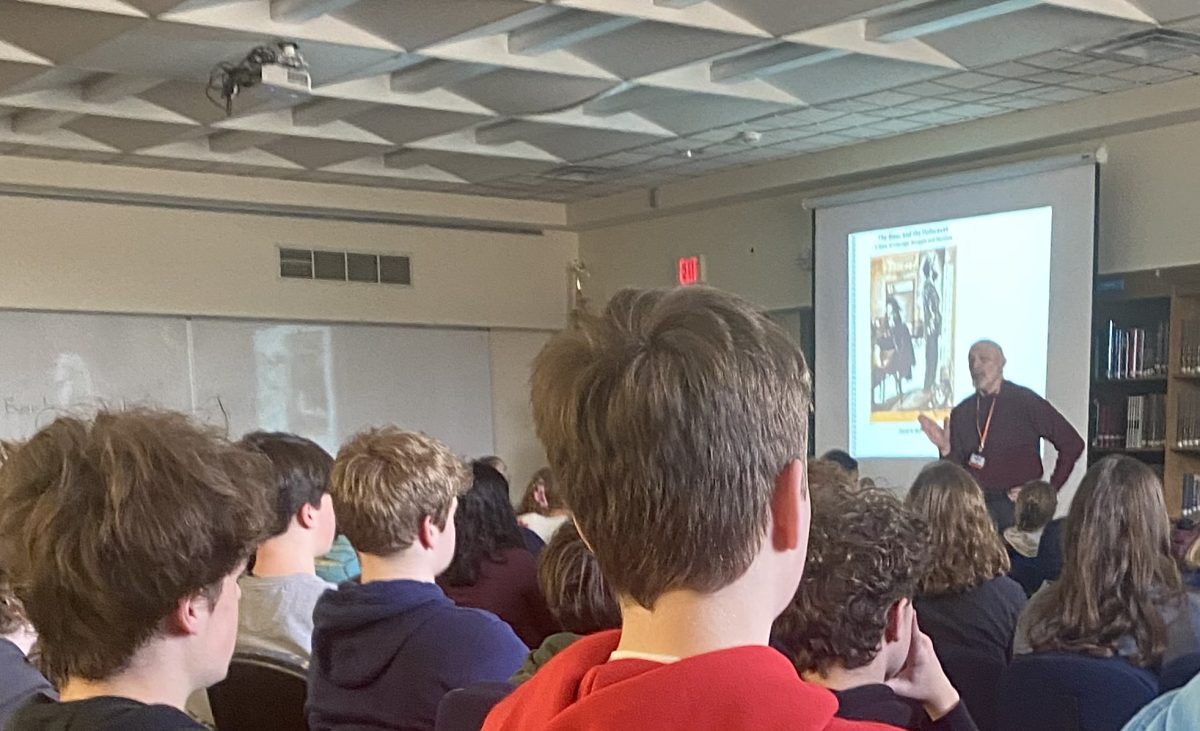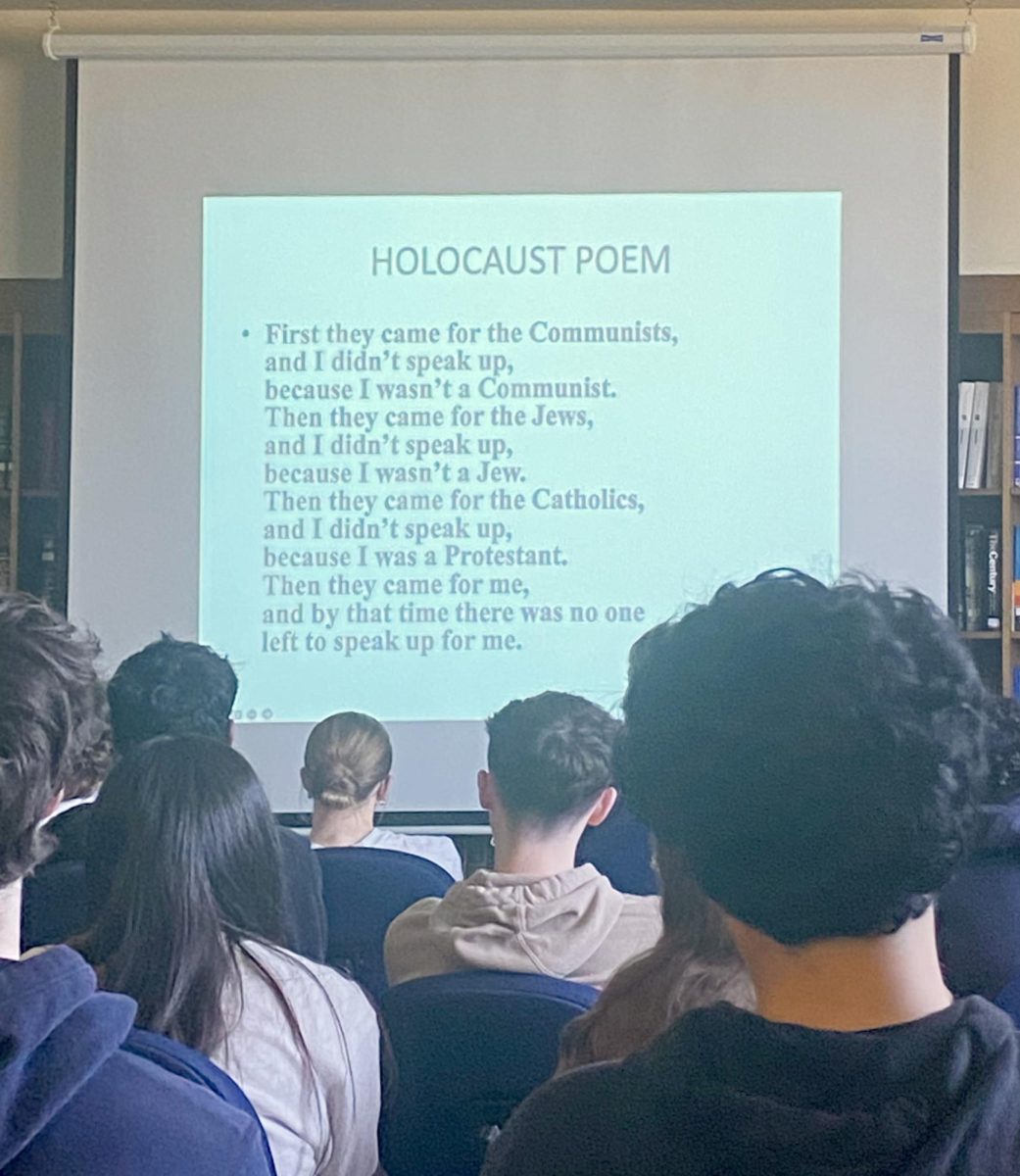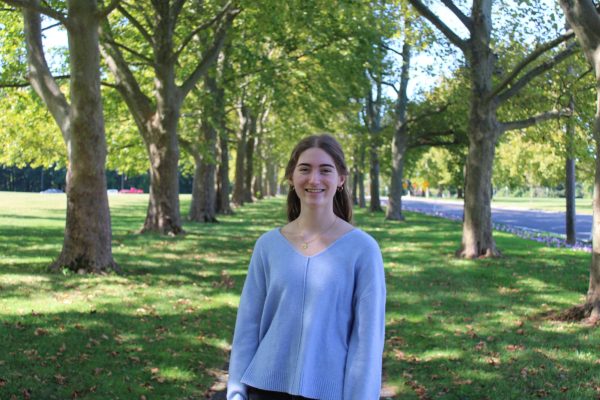Vienna, Austria, 1938. A young man hides inside a basement wall, its thin plaster his only shield from the Nazis searching the house beyond. If they find him, he’ll join his fellow Jews in the concentration camps. So he stays perfectly quiet as the soldier slams a rifle through the drywall off to his side. Once, twice; close, closer. The next time, the rifle won’t find empty air. And then, at a barked order from his commandant, the Nazi is summoned back upstairs to search the next house.
“That’s how precious and fragile life is. In an instant, your life can change,” said guest speaker Mr. Marc Blau, a former Bangor High School history teacher.
That young man who survived was Mr. Blau’s father, and if he and his future wife hadn’t escaped the Holocaust, Mr. Blau wouldn’t be here to tell the tale to Southern Lehigh students.
On Wednesday, February 26th, history teacher Mr. Troy Ruch invited students in his ninth grade U.S. classes to hear from Mr. Blau, the son of Holocaust survivors. Mr. Blau provided a victim’s perspective on the horrors of the Holocaust, giving deeper meaning to the World War II curriculum the students are currently studying.
“The personal accounts make the story real,” Mr. Ruch said. “It’s not just something in a book, it’s a reality that cannot be forgotten.”
Mr. Blau feels that his words are applicable to today’s political climate.
“Racism and prejudice are rampant in this country, and you don’t have to be a minority to know. I’m here to allow you to feel it, because you just become immune to it. We all become immune to it,” Mr. Blau said. “History’s supposed to teach you about the horrible things that happen so that you don’t repeat it.”
Freshman Lillyan Steiner, a student who attended the presentation, felt the impact of that message.
“We have to keep moving forward as a country to stop things like the Holocaust from happening again,” Steiner said.
Mr. Blau felt that the clearest implication of genocides such as the Holocaust is just how easily humans return to selfish, animal instincts in the face of danger. He explained that if a person was presented with the choice of “kill or be killed,” it is uncomfortably likely that they would do whatever was necessary to save themselves.
Even in less extreme situations, Mr. Blau said people tend to not take action despite knowing that the events taking place around them are morally wrong. He specifically mentioned how, in the early months of the anti-Jewish ordinances in Austria, his parents visited a non-Jewish neighbor who—rather than offering them help—asked to have their furniture once they were shipped off to the concentration camps.
Another implication of the Holocaust, according to Mr. Blau, applies to where nations stand on immigration. He expressed immense gratitude towards America for allowing his parents asylum after they escaped Europe, and gave his particular thanks to the Softman family of Bangor, PA for guiding them to find jobs and a new home.
However, he still calls for a more efficient system to accept refugees, as many countries only accept a certain number of immigrants and only through a difficult entrance process.
“What are you supposed to say?” Mr. Blau said. “‘Our quotas are 100,000 and you’re number 100,001, so you’re going to have to stay in Europe and get slaughtered?’”
Mr. Blau told students how his mother, out of desperation to avoid such a fate, waited in line all day to secure passports for herself and her husband. Her turn arrived at closing time, and—fearing she wouldn’t have another chance—she threw herself through the door, kicking and screaming until she had the passports in hand.
“Mr. Blau’s speech affected my perspective on the Holocaust by making me feel how terrified those people must have felt; it makes me feel sympathy for those who were lost in the Holocaust,” Steiner said. “As a descendant from Germany, I feel extremely horrible for those people, and if I were alive at that time, I wish I could have helped.”
That – the inspiration to do whatever is necessary to stand up against evil – is the influence Mr. Blau hopes to have as his listeners hear and digest his family’s story.
“When it comes down to it, we learned nothing. Next week there could be another [genocide], for all we know, and there we sit,” Mr. Blau said. “If you think it’s far away, it will creep up on you sooner or later. Have empathy, folks.”




